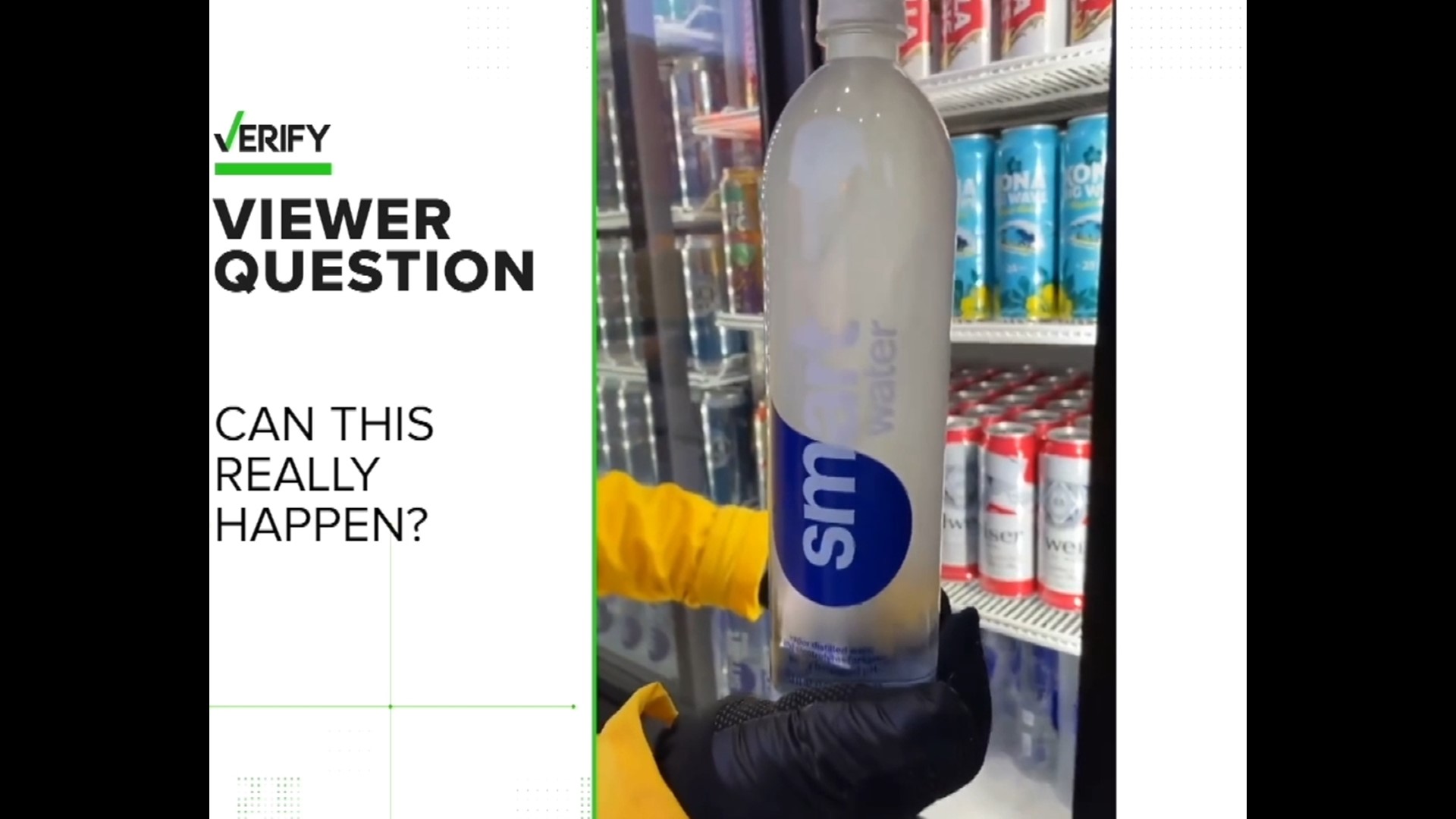JACKSONVILLE, Fla. — Have you seen the viral video circulating online, depicting a water bottle freezing almost instantly during an exceptionally cold football game in Kansas City?
The video raises questions about the feasibility of such a phenomenon.
THE QUESTION:
Can a water bottle freeze instantly?
THE SOURCES:
- Meteorologist Robert Speta
- A Science Experiment in Our Studio
THE ANSWER
For starters the video is interesting, but even in very cold temperatures a water bottle is not going to freeze like a scene out of the movie "The Day After Tomorrow." Instead you may notice the bottle is taken out of the freezer, which means it is likely supercooled. Supercooled water is water that is below 32 degrees but is not frozen.
Let's look at the role of supercooled water. Water droplets typically need condensation nuclei—such as dust, minerals, or other ice crystals—to freeze. Pure water, like that found in a bottle of Smart Water, lacks these nuclei. When undisturbed, it can cool below 32 degrees without freezing. However, even at room temperature, disturbance can lead to the formation of ice crystals, expediting the freezing process.
But temperature isn't the sole culprit. While the frigid temperatures in the video, well below zero degrees, likely played a role in ice formation, they weren't the sole reason. It's essential to grasp that external ambient temperature alone doesn't account for the observed instant freezing but instead a combination of both.
In summary, we can verify that this phenomenon is indeed possible, but it's crucial to recognize that external ambient temperature is not the exclusive factor influencing the observed ice formation.
Try it Yourself
Curious to witness this phenomenon at home? Place a pure, unopened bottle of water in the freezer for two hours and conduct a simple experiment to observe the process firsthand.

